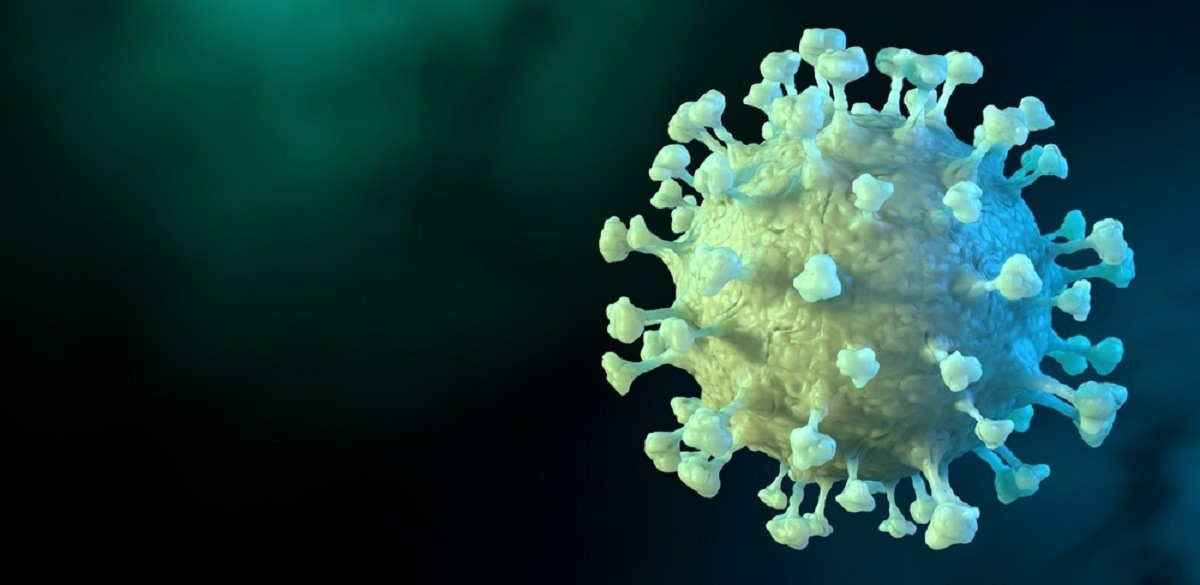A recent study published in the Journal of Food Biochemistry discovered that peimine from Fritillaria might be a possible severe acute respiratory syndrome coronavirus 2 (SARS-CoV-2) variant infection inhibitor.

Background
Although several coronavirus disease 2019 (COVID-19) vaccines were available, SARS-CoV-2 variants of concern (VOCs) can escape vaccine-induced immunity. The transmembrane spike (S) glycoprotein on the SARS-CoV-2 surface is necessary for the virus to enter host cells. Besides, due to the direct binding between the angiotensin-converting enzyme 2 (ACE2) receptor and the SARS-CoV-2 S protein, it was discovered as the viral receptor on the host cell membrane. As a result, it is critically necessary to create small compound medicines that directly disrupt the contact between the viral S glycoprotein and ACE2 to offer COVID-19 patients an alternative or complementary treatment.
Remarkably, clinical trials using herbal medicines to treat SARS-CoV-2 patients have shown a considerable improvement in symptoms and a reduction in the length of the disease course. Additionally, in the early 2000s, during the SARS outbreak, patients' symptoms and quality of life were enhanced by a combined Western and herbal therapy. These studies imply that using herbal medicine for treating and preventing infectious disorders is advantageous.
About the study
In the present work, to quickly translate bench discoveries to clinical settings, the authors examined whether unbiased drug evaluation on pure compounds from a collection of known herbal plants can uncover prospective anti-SARS-CoV-2 medicines. They used a cell-based experiment to test 126 pure compounds from an extensive drug library, the Natural Compound Library, to find the drugs with antiviral infection efficacy against SARS-CoV-2 and its variants. The team also conducted an in vitro study to analyze the biophysical characteristics of the SARS-CoV-2 S protein's adhesion with ACE2.
The researchers used Huh-7 cells in a virus particle pseudotyping (Vpp) SARS-CoV-2 experiment. Thereby assessed the Vpp infectivity relying on luciferase function. The scientists gathered and discovered drug compounds that prevent SARS-CoV-2 host cell entrance. Further, they determined whether Huh-7 cells were the only ones affected by the medications' effectiveness. They tested the efficacy of the pure compounds in a different human cell line that allows SARS-CoV-2 entrance.
The team created stable furin transfectants with Vero E6 cells to examine if the efficiency of peimine was furin reliant. Additionally, they introduced various SARS-CoV-2 variants into these transfected cells. To further investigate if peimine prevents SARS-CoV-2 infection by reducing the expression of the ACE2 and transmembrane serine protease 2 (TMPRSS2) proteins Huh-7 and 293T/ human ACE2 (hACE2) cells were treated with concentrations of peimine ranging from 1.25 μM to 20 μM. The investigators evaluated the receptor-binding domain (RBD) of the SARS-CoV-2 wild-type (WT) and five variants, namely B.1.351, B.1.1.7, P.1, B.1.617.2, and B.1.1.529.
Results
The study results indicate that a Fritillary species active component harboring anti-inflammatory traits named peimine might be a promising therapeutic agent for managing COVID-19 patients.
In detail, four substances, i.e., vanillic acid, sciadopitysin, semagacestat, and peimine, exhibited significant inhibitory effects out of the 126 natural compounds. Consequently, the authors chose them as hits utilizing a z-score among Huh-7 cells. The research revealed that herbal plants' pure, natural components could function as possible SARS-CoV-2 inhibitors.
The investigators found that peimine-treated cells consistently and significantly blocked SARS-CoV-2 pseudovirus entry. Peimine dramatically decreased the green fluorescent protein (GFP) expression brought on by Vpp infection throughout human ACE2 (hACE2)-overexpressing 293T cells, which was consistent with the measurement of luciferase function. Contrary to hydroxychloroquine (HCQ), peimine therapy up to 1,000 μM had no detrimental effects on cell viability. The findings suggest that peimine can prevent SARS-CoV-2 entrance in various cell lines like Calu-3 lung and 293T/ACE2 cells.
Peimine also notably reduced the infection of Vero E6 parental and furin-overexpressing cells by 501Y.V2 and B.1.1.7. After peimine therapy, ACE2-overexpressing 239T cells demonstrated excellent efficiency in preventing Vpp variant infection. According to the study's findings, peimine was a potential drug effective against the SARS-CoV-2 501Y.V2 and B.1.1.7 VOCs as well as the WT strain.
Besides, peimine did not impact 293T/hACE2 or Huh-7 cells' TMPRSS2 or ACE2 expression. In a fluorescence resonance energy transfer (FRET)-based experiment, peimine dramatically reduced the adhesion capacity of the SARS-CoV-2 S protein and ACE2. The authors also showed that Fritillaria and peimine both could prevent SARS-CoV-2 infection.
Additionally, the SARS-CoV-2 WT strain exhibited the highest binding stability towards peimine, while B.1.1.529 had the lowest. Peimine formed polar interaction with the N501Y mutant S protein, one of the widespread mutations in the SARS-CoV-2 P1 lineage, B.1.351, B.1.1.7, and B.1.1.529 variants. Furthermore, the results revealed that calcium (Ca2+) therapy did not offset the effects of peimine.
Conclusions
Overall, in the current investigation, the team established a viral infection assessment to evaluate a collection of around 126 small compounds and illustrated that peimine hindered the infection with the SARS-CoV-2 WT strain and VOCs, including 501Y.V2, B.1.1.7, and B.1.617.2, in Calu-3 lung and 293T/ACE2 cells. Furthermore, a FRET experiment revealed that peimine inhibits the interaction between S and ACE2. Peimine could establish hydrogen bonds with the S protein's N501Y and has a stronger affinity for SARS-CoV-2 variant S proteins, according to the molecular docking investigation.
The current findings indicate that peimine, a compound extracted from Fritillaria, might be a potent SARS-CoV-2 variant infection inhibitor. Hence, Fritillaria and peimine may be food and prospective functional drugs for COVID-19 patients.
- Wang, W-J, Chen, Y., Su, W-C, Liu, Y-Y, Shen, W-J, Chang, W-C, Huang, S-T, Lin, C-W, Wang, Y-C, Yang, C-S, Hou, M-H, Chou, Y-C, Wu, Y-C, Wang, S-C, & Hung, M-C (2022). Peimine inhibits variants of SARS-CoV-2 cell entry via blocking the interaction between viral spike protein and ACE2. Journal of Food Biochemistry. doi: https://doi.org/10.1111/jfbc.14354 https://onlinelibrary.wiley.com/doi/10.1111/jfbc.14354
Posted in: Medical Science News | Medical Research News | Disease/Infection News
Tags: ACE2, Angiotensin, Angiotensin-Converting Enzyme 2, Anti-Inflammatory, Biochemistry, Calcium, Cell, Cell Line, Cell Membrane, Compound, Coronavirus, Coronavirus Disease COVID-19, covid-19, Drugs, Efficacy, Enzyme, Fluorescence, Fluorescent Protein, Food, FRET, Glycoprotein, Hydroxychloroquine, immunity, in vitro, Luciferase, Medicine, Membrane, Protein, Pseudovirus, Receptor, Research, Respiratory, SARS, SARS-CoV-2, Serine, Severe Acute Respiratory, Severe Acute Respiratory Syndrome, Spike Protein, Syndrome, Vaccine, Virus

Written by
Shanet Susan Alex
Shanet Susan Alex, a medical writer, based in Kerala, India, is a Doctor of Pharmacy graduate from Kerala University of Health Sciences. Her academic background is in clinical pharmacy and research, and she is passionate about medical writing. Shanet has published papers in the International Journal of Medical Science and Current Research (IJMSCR), the International Journal of Pharmacy (IJP), and the International Journal of Medical Science and Applied Research (IJMSAR). Apart from work, she enjoys listening to music and watching movies.
Source: Read Full Article